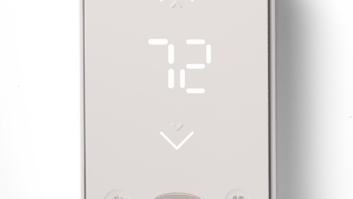Bellevue, Wash. – Wireless-to-wireless porting agreements are sailing through now that the FCC ordered carriers to port on Nov. 24 even if they haven’t reached agreements with one another on the procedures for handling a porting request.
In recent weeks, T-Mobile reached agreements with AT&T Wireless, Cingular Wireless, Nextel Communications, Sprint PCS, and Verizon Wireless. For its part, Nextel reached an agreement with Cingular, having previously concluded an agreement with Sprint PCS before the FCC handed down its Oct. 7 order.
With the Oct. 7 order, the FCC responded to carriers who complained they couldn’t strike wireless-to-wireless porting agreements in time for the Nov. 24 deadline unless the commission clarified basic implementation rules. Before the directive, different carriers were trying to negotiate different business rules to deny or delay a port, including whether to require payment of early termination fees before authorizing a port.
In its order, the FCC told wireless carriers that they ‘may not refuse to port numbers upon receipt of a valid request from the customer’s new carrier,’ even if the subscriber owes money to his existing carrier. The order also shot down objections that, if heeded, would have sharply limited the number of subscribers who could port from one wireless carrier to another (see issue 21 xxx).
Most carriers are still awaiting FCC direction on landline-to-wireless porting rules and procedures before reaching porting agreements, despite an FCC mandate to offer such porting on Nov. 24.
Meantime, the wireless-to-wireless porting agreements now being hammered out create ‘terms, definitions and time frames’ and specify ‘technology-based processes’ to implement the porting process smoothly, said a T-mobile spokesman. They cover everything from agreed-upon fields in electronic documents to a target timeframe for verifying the eligibility of a particular phone number to be ported to a new phone, he said. To be eligible for porting, for example, a number has to be ported to a phone activated in the same metro area as the current phone, per FCC mandate.
Now that the FCC has spoken on wireless-to-wireless porting, carriers are reaching agreements and talking more openly about what consumers and retailers can expect when porting a number.
T-mobile, for example, told TWICE that it wouldn’t restrict porting requests to its direct channels when the LNP mandate goes into effect on Nov. 24. Carriers Sprint PCS, Verizon, and Nextel previously told TWICE that they would do the same. Leap Wireless, however, plans at first to handle all porting requests.
In outlining the consumer’s retail experience, Nextel said it is ‘doing all we can’ to meet the CTIA’s agreed-upon target of 2.5 hours to validate a porting request and activate a new phone with the old phone’s number. ‘It’s unlikely it will happen in less than 2 1/2 hours,’ she noted. And it’s likely to take longer if incorrect information is entered into an electronic terminal or there’s other ‘fallout,’ she said. If there’s fallout, dealers will be transferred to a customer-service center dedicated to porting to work through validation problems.
Once a number is approved for porting, consumers will be able to walk out the door with a phone, but not necessarily with an active phone, Nextel said. Consumers would have to call a toll-free number or check Nextel’s web site to check the status of their port. Until the new phone is active, the old phone will operate as usual, she said. The goal is for service on the old phone to end simultaneously with the activation of the new phone, but it’s possible that ‘for a few minutes’ after the new phone is activated, incoming calls will be routed to the old phone, she noted.
T-Mobile described a slightly different consumer experience. Consumers who walk out the door with a new but unactivated phone will be notified that the porting process is complete via a text message or voice call to the new phone, the spokesman said.
‘The way it’s supposed to work,’ he added, is that the subscriber’s old phone will work as usual until the new phone is activated, at which time the new phone will work as usual.
T-Mobile also said it wants to set ‘realistic’ expectations for consumers, noting that it might take anywhere from three to 24 hours for a number to be ported to a new phone. Indirect channels that use the carrier’s automated activation system are more likely to port successfully within the 3-24-hour timeframe, he said.













